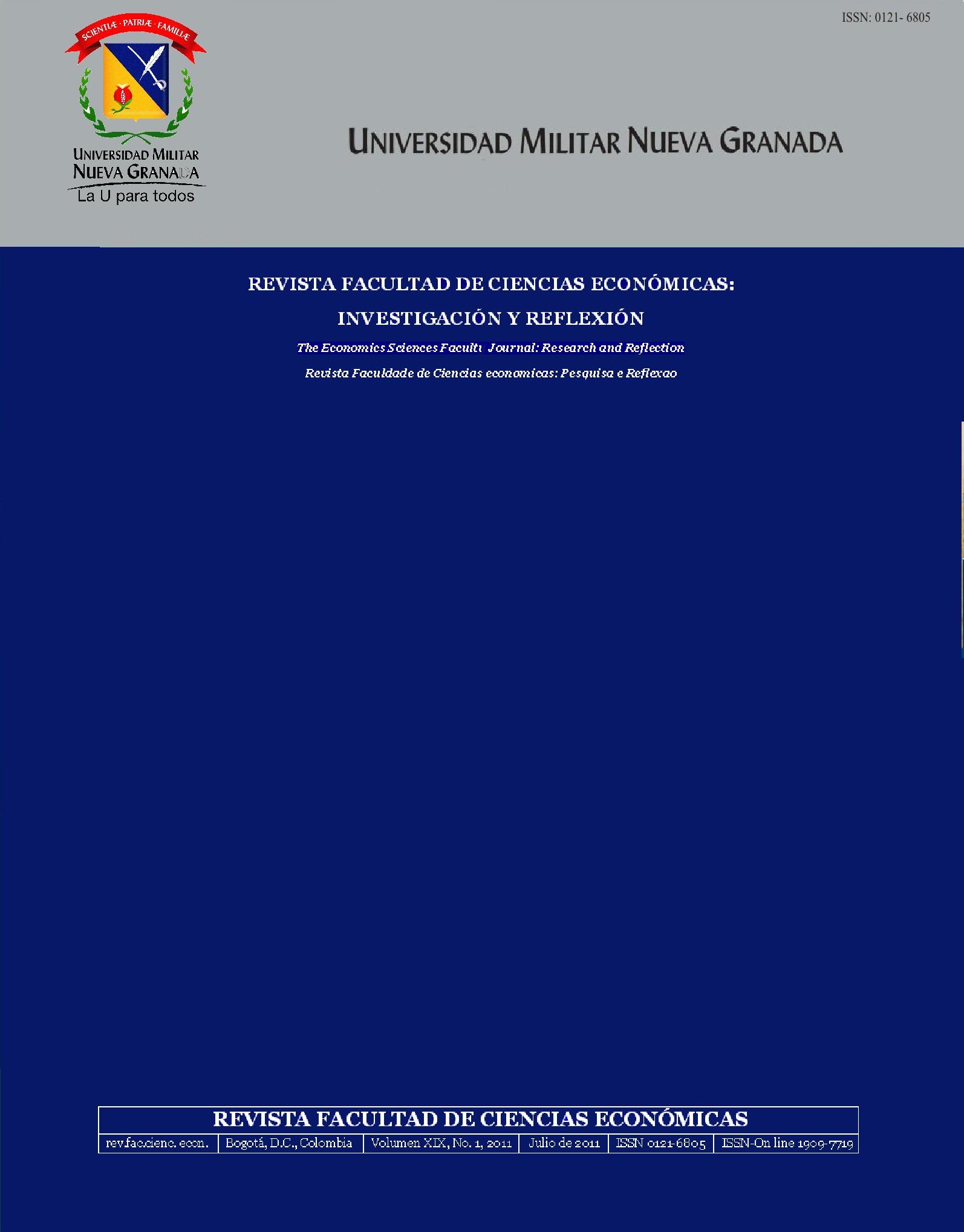Tempo e lugar dos movimentos sociais transnacionais
Resumo
Os movimentos sociais transnacionais são fruto de um processo histórico prolongado. Esses movimentos têm possibilitado a criação de espaços sociais diferentes em que surgem laços simbólicos, formas organizacionais e mecanismos de articulação que lhes permitem transformar-se em sujeitos de mudança social em um mundo cada vez mais interconectado. No entanto, supostamente, têm alcançado um estado de elanguescimento. Como surgem e que produzem esses movimentos sociais? Quais são as possibilidades desses movimentos continuarem e serem sujeitos de transformação social ao longo prazo no ambiente internacional? Estas duas perguntas guiam esta pesquisa. Ao final, o documento reconhece a importância desses movimentos na denuncia das contradições do capitalismo atual.Downloads
Referências
Altvater, E. (2002). El lugar y el tiempo de lo político bajo las condiciones de la globalización económica. Ort und Zeit des politischen unter Bedingungen òkonomischer Globalisierung. En: Zona Abierta(92/93): 7-60.
Arias, M. (2008). La globalización de los movimientos sociales y el orden liberal. Acción política, resistencia cívica, democracia. En: Revista Espa-ola de Investigaciones Sociológicas (Reis)(124): 11-44.
Ayres, J. (2005). From "Anti-Globalization" to the Global Justice Movement: Framing Collective Action against Neoliberalism. En B. Podobnik & T. Reifer (Eds.), Transforming Globalization: Challenges and Opportunities in the Post 9/11 Era (927). Leiden: Brill.
Batliwala, S. (2001). Grassroots Movements as Transnational Actors: Implications for Global Civil Society. Voluntas: International Journal of Voluntary and Nonprofit Organizations, 13(4): 393-409. http://dx.doi.org/10.1023/A:1022014127214
Bello, W. (2004). Deglobalization: Ideas for a New World Economy (2nd ed.). London; New York: Zed Books.
Bohórquez, J. (2009). Transnacionalismo e historia transnacional del trabajo: Hacia una síntesis teórica. Papel Político, 14(1): 273-301.
Bonnassies, V. (2005). La transnationalisation des mouvements sociaux dans les Amériques et son impact sur la redefinition du politique: vers une typologie (Vol. 05-02). Montreal: Centre Études internationales et Mondialisation.
Borras, S. (2004). La Vía Campesina: Un movimiento en movimiento (B. Martínez Ruiz, trad.). Amsterdam: Transnational Institute.
Borras , S.(2008). La Vía Campesina and its Global Campaign for Agrarian Reform. Journal of Agrarian Change, 8(2-3): 258-289. http://dx.doi.org/10.1002/9781444307191.ch4
Brecher, J, Costello, T. & Smith, B. (2000). Globalization from Below: The Power of Solidarity. Cambridge, Mass.: South End Press.
Brittain, J. (2005). A Theory of Accelerating Rural Violence: Lauchlin Currie's Role in Underdeveloping Colombia. Journal of Peasant Studies, 32(2): 335-360. http://dx.doi.org/10.1080/03066150500094535
Brysk, A. (2000). From Tribal Village to Global Village: Indian Rights and International Relations in Latin America. Stanford Stanford University Press.
Castells, M. (1999). The Information Age: Economy, Society and Culture. Malden - Oxford: Blakwell Publishers.
Cohen, R., & Rai, S. (2000). Global Social Movements: Toward a Cosmopolitan Politics. En: R. Cohen & S. M. Rai (Eds.), Global Social Movements (1-17). London; New Brunswick, NJ: The Athlone Press.
Colás, A. (2002). International Civil Society: Social Movements in World Politics. Cambridge: Polity.
Coordinadora Latinoamericana de Organizaciones del Campo - CLOC. (2005). Directrices operativas y de funcionamientode la CLOC. En: Coordinadora Latinoamericana de Organizaciones del Campo - CLOC (Ed.). Memoria IV Congreso Continental de la CLOC.
Davis, D. (1999). The Power of Distance: Re-Theorizing Social Movements in Latin America. Theory and Society, 28(4): 585-638. http://dx.doi.org/10.1023/A:1007026620394
della Porta, D., Andretta, M., Mosca, L., & Reiter, H. (2006). Globalization from Below: Transnational Activists and Protest Networks. Minneapolis; London: University of Minnesota Press.
della Porta, D., & Tarrow, S. (2005a). Conclusion: "Globalization," Complex Internationalism, and Transnational Contention. En D. della Porta . & S. Tarrow (Eds.). Transnational Protest and Global Activism (227-245). Lanham, MD: Rowman & Little-field Publishers.
della Porta, D., & Tarrow, S. (2005b). Transnational Process and Social Activism: An Introduction. En D. della Porta & S. Tarrow (Eds.). Transnational Protest and Global Activism (117). Lanham, MD: Rowman & Littlefield Publishers.
Drainville, A. (2004). Contesting Globalization: Space and Place in the World Economy. London: Routledge.
Drainville, A. (2005). Quebec city 2001 and the making of transnational subject. En: L. Amoore (Ed.), The Global Resistance Reader (169-189). London; New York: Routledge.
Evans, (2007). Instituciones y desarrollo en la era de la globalización neoliberal (C. F. Morales de Setién Ravin, Trans.). Bogotá: ILSA.
Faist, T. (2000). The Volume and Dynamics of International Migration and Transnational Social Spaces. Oxford: Claredon Press; Oxford University Press. http://dx.doi.org/10.1093/acprof:oso/9780198293910.001.0001
Foucault, M. (2004). Naissance de la biopolitique. Paris: École des hautes études en science sociales/Gallimard/Seuil.
Foweraker, J. (1995). Theorizing Social Movements. London: Pluto Press.
Foweraker, J. (2001). Grassroots Movements, Political Activism and Social Development in Latin America: A Comparison of Chile and Brazil. Geneva: USRID.
Fraser, N. (2003). Rethinking Recognition: Overcoming Displacement and Cultural Reification in Cultural Politics. En B. Hobson (Ed.), Recognition Struggles and Social Movements: Contested Identities, Agency and Power ( 21-32). Cambridge, UK: Cambridge University Press.
Giugni, M. (2004). Social Protest and Policy Change: Ecology, Antinuclear, and Peace Movements in Comparative Perspective. Lanham (Madison): Rowman & Littlefield.
Gledhill, J. (2004). Neoliberalism. En: D. Nugent & J. Vincent (Eds.), A Companion to the Anthropology of Politics (332-348). Malden: Blackwell.
Hanagan, M. (2002). Irish Transnational Social Movements, Migrants, and the State System. En: J. Smith & H. Johnston (Eds.), Globalization and Resistance: Transnational Dimensions of Social Movements (53-73). Lanham, Maryland: Rowman & Littlefield.
Hardt, M., & Negri, A. (2000). Empire. Cambridge: Harvard Universtiy Press.
Hewitt de Alcántara, C. (1998). Uses and Abuses of the Concept of Governance. International Social Science Journal, 155: 105-113. http://dx.doi.org/10.1111/1468-2451.00113
Hobsbawm, E. (1999). Vietnam y la dinámica de la guerra de guerrillas (R. Pochtar, Trans.) Gente poco corriente. Resistencia, rebelión y jazz ( 169-181). Barcelona: Crítica.
Hobsbawm, E. (2001). Rebeldes primitivos. Barcelona: Crítica.
Khagram, S., Riker, J., & Sikkink, K. (2002). From Santiago to Seattle: Transnational Advocacy Groups: Restructuring World Politics. En: S. Khagram, J. V. Riker & K. Sikkink (Eds.), Restructuring World Politics: Transnational Social Movements, Networks, and Norms (Vol. 1: 3-23). Minneapolis: University of Minnesota Press.
Koalka, J. (1966). Some Remarks on the Concepts of Nationalism and Internationalism. Historica, XIII: 209-216.
Korzeniewicz, R., & Smith, W. (2004). Redes regionales y movimientos sociales transnacionales en patrones emergentes de colaboración y conflicto en las Américas. América Latina Hoy (36): 101-139.
Kriesberg, L. (1997). Social Movements and Global Transformation. En: J. Smith, C. Chatfield & R. Pagnucco (Eds.), Transnational Social Movements and Global Politics: Solidarity beyond the States (Vol. Syracuse University Press: 3-18). Syracuse.
Lacan, J. (1973). Le séminaire. Livre XI : les quatre concepts fondamentaux de la psychanalyse, 1964 (Vol. XI). Paris: Editions du Seuil.
Mann, M. (2002). ¿Ha terminado la globalización con el imparable ascenso del Estado nacional? Has Globalization Ended the rise of the nation-state?. Zona Abierta (92/93): 175-211.
Marx, K. (1985). El Capital. Crítica de la economía política (Scaron, trad. 12 ed. Vol. I/2). México D. F.: Siglo veintiuno editores.
Marx, K. (1987). El Capital. Crítica de la economía política (Scaron, trad. 16 ed. Vol. I/1). México D. F.: Siglo Veintiuno Editores.
McCarthy, J. D. (1997). The Globalization of Social Movement Theory. En: J. Smith, C. Chatfield & R. Pagnucco (Eds.), Transnational Social Movements and Global Politics: Solidarity beyond the States (Vol. Syracuse University Press: 243-259). Syracuse.
McMichael, P. (2004). Development and Social Change: A Global Perspective (3rd ed.). Thousand Oaks Pine Forges Press.
McMichael, P. (2008). Peasants Make Their Own History, But Not Just as They Please... En: Journal of Agrarian Change, 8 (23): 205-228. http://dx.doi.org/10.1111/j.1471-0366.2008.00168.x
Munck, R. (2004). Globalization and Social Exclusion: A Transformationalist Perspective. Bloomfield: Kumarian Press.
Munck, R. (2007). Globalization and Contestation: The New Great Counter-Movement. London; New York: Routledge.
Múnera Ruiz, L. (1998). Rupturas y continuidades: Poder y movimiento popular en Colombia 1968-1988. Santa Fe de Bogotá: CEREC; Universidad Nacional de Colombia.
O'Brien, R., Goetz, A. , Scholte, J. & Williams, M. (2000). Contesting Global Governance: Multilateral Economic Institutions and Global Social Movements. Cambridge, UK: Cambridge University Press. http://dx.doi.org/10.1017/cbo9780511491603
Pinto, M., & Gálvez, C. (1996). Análisis documental de contenido. Procesamiento de la información. Madrid: Ed. Síntesis.
Podobnik, B. (2005). Resistance to Globalization: Cycles and Trends in the Global Protest Movement. En: B. Podobnik & T. Reifer (Eds.), Transforming Globalization: Challenges and Opportunities in the Post 9/11 Era ( 51-68). Leiden: Brill.
Polanyi, K. (2001). The Great Transformation: The Political and Economic Origins of Our Time. Boston: Beacon Press.
Poulantzas, N. (1971). Pouvoir politique et classes sociales. Paris: François Maspero.
Poulantzas, N. (1986). Estado, poder y socialismo: Siglo Veintiuno Editores.
Reitan, R. (2007). Global Activism. London; New York: Rout-ledge.
Santos, B. (2003). La caída del Angelus Novus: Ensayos para una teoría social y una nueva práctica política. Bogotá: ILSA.
Sassen, S. (1996). Losing Control?: Sovereignity in an Age of Globalization. New York: Columbia University Press.
Schmitt, C. (1990). Légalité et légitimité Du politique « légalité et légitimité » et autres essais ( 39-79). Paris: Pardès.
Scholte, J. (2005). Globalization: A Critical Introduction (2nd ed.). New York: Palgrave Macmillan.
Smith, J. (1997). Social Movements and World Politics. En: J. Smith, C. Chatfield & R. Pagnucco (Eds.), Transnational Social Movements and Global Politics: Solidarity beyond the States (Vol. Syracuse University Press: 59-77). Syracuse.
Smith, J. (2002). Globalizing Resistance: the Battle of Seattle and the Future of Social Movements. En: J. Smith & H. Johnston (Eds.), Globalization and Resistance: Transnational Dimensions of Social Movements (207-227). Lanham, Maryland: Rowman & Littlefield.
Smith, J. (2005). Exploring Connections between Global Integration and Political Mobilization. En: B. Podobnik & T. Reifer (Eds.), Transforming Globalization: Challenges and Opportunities in the Post 9/11 Era (29-49). Leiden: Brill.
Sommier, I. (2003). Le renouveau des mouvements contestataires : à l'heure de la mondialisation. Paris: Flammarion.
Tarrow, S. (1994). Power in Movement: Social Movements, Collective Action and Politics. Cambridge: Cambridge University Press.
Tarrow, S. (1998). Fishnets, Internets, and Catnets: Globalization and Transnational Collective Action. En M. Hanagan, L. Moch & W. T. Brake (Eds.), Challenging Authority: the Historical Study of Contentious Politics (Vol. 7: 228-244). Minneapolis: University of Minnesota Press.
Tarrow, S. (2005). New Transnational Activism. Cambridge: Cambridge University Press. http://dx.doi.org/10.1017/CBO9780511791055
van der Linden, M. (2003). Transnational Labor History: Explorations. Hants: Ashgate.
van Dijk, T. (1996). Análisis del discuso ideológico. Versión(6): 15-43.
Webster, N. (2004). Understanding the Evolving Diversities and Originalities in Rural Social Movements in the Age of Globalization. Geneva: Civil Society and Social Movements Programme, United Nations Research Institute for Social Development.
Wood, L. J. (2005). Taking to the Streets against Neoliberalism: Global Days of Action and Other Strategies. En B. Podobnik & T. Reifer (Eds.), Transforming Globalization: Challenges and Opportunities in the Post 9/11 Era (69-81). Leiden: Brill.
World Commission on the Social Dimension of Globalization. (2004). A Fair Globalization: Creating Opportunities for All Retrieved Abril 12, 2010, from http://www.ilo.org/public/eng-lish/wcsdg/docs/report.pdf
Zamosc, L. (2001). Peasant Struggles in the 1970s in Colombia. En: S. Eckstein (Ed.), Power and Popular Protest: Latin American Social Movements (2nd ed., 102-131). Berkeley; Los Angeles; London: University of California Press.
Zizek, S. (2003). Da Capo senza Fine (C. Sardoy & G. Homs, trad.) Contingencia, hegemonía, universalidad (215-262). Buenos Aires: Fondo de Cultura Económica.











